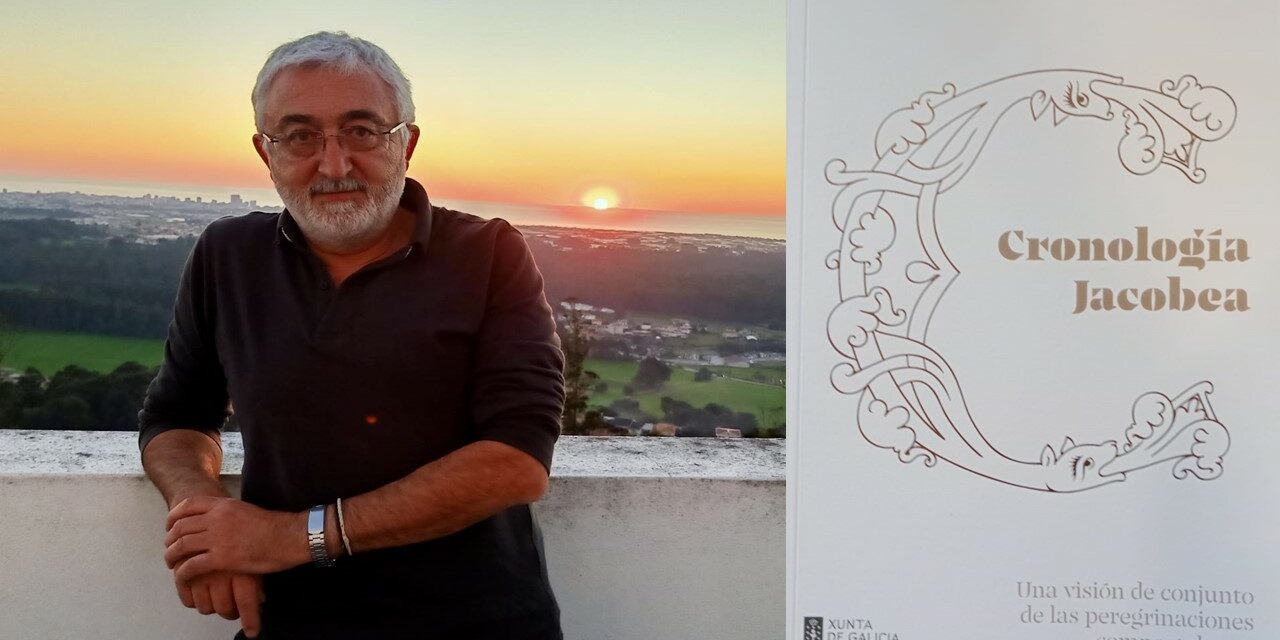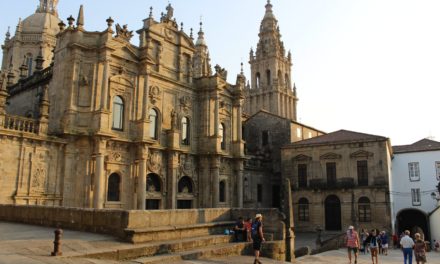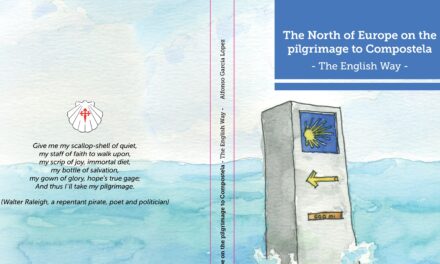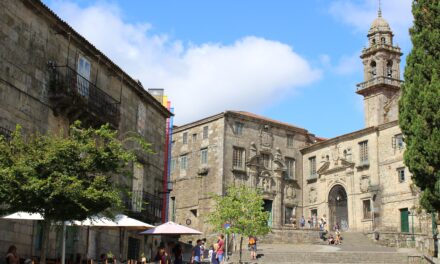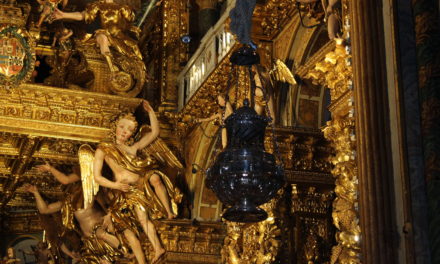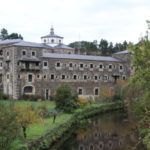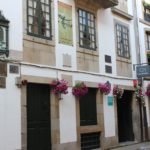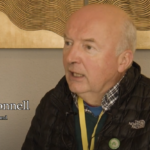Manuel F. Rodríguez is a journalist, researcher and writer well known in the world of the Camino de Santiago, in which he has carried out important work as a technician for the Xacobeo. In recent years he has focused more and more on writing, either research or fiction. Today we examine his latest publication, the result in this case of important research work: the Jacobean Chronology, consisting of an overview of the Compostela pilgrimages, which has just been published by the Xunta de Galicia.
-My first impression when looking at your Jacobean Chronology was to think: How is it possible that no one did something like this before? I address this question to you, because a work like this is really extremely useful for everyone, researchers, disseminators… for anyone interested in the Camino…
Some chronology had been published focusing on great moments and characters in the history of the Camino. That is, on anniversaries. But never, it is true, a chronology with the desire to show Jacobean material in its entirety. And this means taking into account the great moments, good and bad, and also the many anonymous moments, the daily life of the Camino. In this sense, in the introduction of the book I point out that ‘everything’ is not there, which would be an impossibility, but that to a large extent ‘everything’ is there. That is, everything that the Camino meant and means in your daily life.
-How did the project come about? What weight did your connection with the Xacobeo have in it?
The origin was a proposal from the Xacobeo management to prepare a list of anniversaries of the Camino and the Jacobean world for the Xacobeo 21-22 website, on the occasion of the Compostela Holy year 2021-2022. But I realized that a selection of anniversaries did not show the diversity and richness of the phenomenon. I proposed creating a chronology that would present in the 365 days of the year something that had happened in the Jacobean world on each of those days at some point in the past. Highlights or a simple anonymous act. The Camino is about 1,200 years old and is the fruit of many people in many places. That’s what I tried to show. And so it was published on the web during the 365 days of 2021. An agenda was also published for that year that included this chronology.
-I would like you to try to get a little closer to the criteria that have allowed you to select the anniversaries that you collect. What makes you select or not an event as worthy of review in a Jacobean chronology?
The criterion was that each selected date showed a moment of the Camino. And that, seen as a whole, these dates offered a more or less comprehensive vision of it and its history. Another criterion was to avoid the repetition of similar events. However, some issues needed a certain reiteration over time to demonstrate their significance. And there was also a problem: in past centuries many important topics did not have, for various reasons, a specific date of reference, so I had to ignore them. In the book, and with the intention of context, there are some of those most significant facts, since they are presented in order by centuries and years, not by days. A book that, by the way, owes its publication to the efforts of Professor Paolo Caucci, who convinced the Xunta so that this chronology should not be forgotten.
-Your book seems fundamental to me for research as it includes an important bibliography and, above all, a bibliography that also concerns the 20th and 21st centuries. Is the present already a matter of investigation on the Camino?
The present, that is, the contemporaneity of the Camino, is now pure history, and a very intense, sizzling story it is! And it had to be in the chronology. In addition, I encountered days when it was very difficult to find any fact from past centuries to include. I resolved those gaps by turning to the most recent years.
-I suppose that in such a vast investigation, with so many diverse sources, you will have found data and anniversaries that you did not know about. Did anything surprise you? Would you tell us any particularly strange or surprising facts or events?
I found facts that, rather than being unknown to me, confirmed the presence of the Jacobean pilgrimage in the daily life of Western Europe in the Middle Ages and even, although with an evident reduction in its geographical scope, in the following centuries. A surprising question…? Well, for example, the vitality and geographical dimension achieved by the medieval pilgrimage by sea from various points in Europe to – above all – the port of A Coruña.
-The data you have collected show what has been the essence and soul of the Jacobean phenomenon over the centuries. Based on this, what events or anniversaries do we have to continue repeating, celebrating or promoting in the coming years?
I don’t dare give advice in that sense. That we, the people who love the Camino, do a little every day to not lose its memory, its deepest meanings and its status as a European meeting space, now shared with the rest of the world, is enough for me. In my opinion, the current Camino needs more than more events and anniversaries, it needs common sense.
-Anyway, the opposite question to the previous one… What anniversaries or events should we not repeat?
I do not wish to be a censor of anything. Of course, there are certain propaganda celebrations that I consider totally unnecessary, sometimes even grating.
-Finally, I would like to ask you if you have any other research projects related to the Camino in your hands.
I have begun to delve into the historical relationship between Santiago de Compostela, the goal of the religious, spiritual Way, if you will, and Fisterra, the emotional and eschatological goal whose origins would go beyond the Compostela pilgrimage itself. I intend to understand how they influenced each other, if that is the case, which is what I believe to be so. I am verifying that the issue- which is not going to be easy at all.

